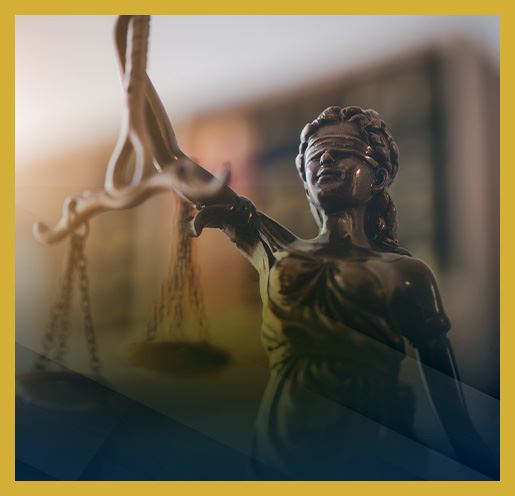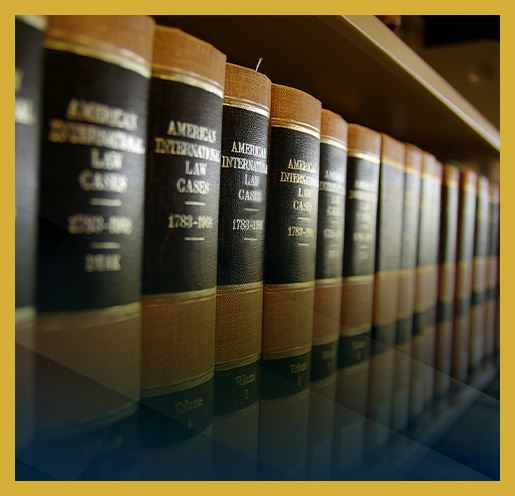
Tell us about your case, and we will tell you how we can help!
Fresno Chapter 7 Bankruptcy Lawyers
Experienced Chapter 7 Attorneys Serving Fresno County, CA
Are you feeling weighed down by the burden of debt? If your financial situation is holding you back from a reasonable repayment plan to your creditors, you may qualify to file for bankruptcy under Chapter 7.
With Chapter 7 bankruptcy in Fresno, a trustee will help you liquidate many of your eligible assets and, in turn, have qualifying debts discharged or reduced by your creditors. For people in certain situations, it is a helpful and effective means of debt management. Seeking guidance from a knowledgeable Chapter 7 bankruptcy lawyer is essential to navigate the complexities of the process and to fully understand how the liquidation of assets works in practice. Being informed about what assets can be protected under state exemptions and how these exemptions apply can significantly affect your financial outcome.
Arnold Law Group, APC can help you understand your options when it comes to bankruptcy and determine whether Chapter 7 is the best choice for you. Call (559) 900-1263 or contact us online today to speak with an experienced Fresno chapter 7 bankruptcy attorney.
Debts That Can and Can’t Be Discharged Under Chapter 7 Bankruptcy
Prominent examples of debt that can be eliminated include:
- Credit Card Debt
- Medical Bills
- Past-Due Utility Balances
- Lawsuits
- Collection Agency Accounts
It’s also possible that tax debts can be discharged, so long as they are more than three years old and meet other qualifying criteria. Tax regulation complexities can vary, so working with a skilled Chapter 7 attorney is vital to deduce whether your specific tax debts meet the discharge requirements and ensuring compliance with both state and federal laws.
Debts that cannot be eliminated through Chapter 7 bankruptcy in Fresno include:
- Child Support
- Spousal Support
- Tax Obligations
- Student Loans
- Secured Debt
Although many wish to include student loans and similar obligations, these typically cannot be discharged in Chapter 7. Exploring alternative options for managing these nondischargeable debts, such as loan consolidation or repayment agreements, can aid in achieving broader financial stability post-bankruptcy.
The Benefits of Filing for Chapter 7 Bankruptcy
The most obvious benefit of filing for Chapter 7 bankruptcy is the potential for quick debt relief of the kinds of unsecured debt noted above. Other advantages are these:
- Obtaining More Disposable Income: By eliminating certain debts, individuals can free up a significant portion of their monthly income that was previously allocated towards debt payments. This additional discretionary income can be used to cover essential living expenses, save for the future, or invest in rebuilding one's financial stability.
- Ending Creditor Harassment: Filing for Chapter 7 bankruptcy triggers an automatic stay, which halts all collection actions by creditors. This means that once the bankruptcy petition is filed, creditors are legally prohibited from contacting the debtor or pursuing collection efforts. This automatic stay provides individuals with much-needed relief from creditor harassment.
- Stopping Foreclosure or Repossession: The automatic stay mentioned earlier not only puts a halt to creditor harassment but also temporarily stops foreclosure proceedings and repossession efforts. This gives individuals the opportunity to explore alternatives, negotiate with lenders, or find different housing options without the immediate risk of losing their home or vehicle.
An additional benefit includes the psychological relief of a fresh financial start, which cannot be overstated. Many individuals find immense peace of mind and stress reduction in knowing there is an achievable path toward financial stability. It is also worth noting that while Chapter 7 bankruptcy can lead to a lower credit score initially, it offers the chance for a clear financial reset. Over time, with disciplined financial behavior, individuals can work toward building a robust credit profile by managing finances more effectively and responsibly post-bankruptcy.
Contact Our Bankruptcy Lawyers in Fresno
At Arnold Law Group, APC, we can evaluate your situation and provide you with the legal assistance you need. Beyond simply processing your bankruptcy application, we offer guidance on how to safeguard your financial well-being moving forward. After you complete the Chapter 7 process, you can face your future with a renewed sense of hope. We stand by your side through it all, advocating for your right to a new financial beginning with empathy and dedication.
Why Choose a Local Chapter 7 Bankruptcy Lawyer in Fresno
Choosing a local Chapter 7 bankruptcy lawyer in Fresno provides several advantages that can significantly impact the outcome of your bankruptcy filing. Local attorneys have a deep understanding of California's bankruptcy laws and specific procedures adhered to by local courts. This regional familiarity allows them to navigate the intricacies of the legal landscape more efficiently, ensuring that all filings are correctly prepared and submitted in a timely fashion. Furthermore, local lawyers often have established connections within the local legal community, which can facilitate more effective communication and negotiation when resolving bankruptcy matters.
In addition, a local attorney can provide personalized service tailored to the unique economic conditions of Fresno and the surrounding areas. They understand the local economy's characteristics and can offer advice that considers regional job markets and cost-of-living factors. This localized approach ensures that the bankruptcy strategy proposed is not only legally sound but also pragmatically aligned with the client's personal circumstances. Local attorneys are more accessible, offering face-to-face consultations that can help in thoroughly explaining the bankruptcy process and addressing any concerns you might have, making the entire experience less intimidating and more supportive.
Frequently Asked Questions about Chapter 7 Bankruptcy
How Does Chapter 7 Bankruptcy Work in Fresno?
Chapter 7 bankruptcy, often referred to as the "liquidation bankruptcy," is designed to eliminate unsecured debts to give individuals a fresh financial start. In Fresno, this process begins with filing a petition with the bankruptcy court, along with documentation of all debts, assets, income, and living expenses. A court-appointed trustee then manages the sale of any non-exempt assets. The proceeds from this liquidation are used to repay a portion of the debts owed to creditors. Remaining eligible debts are usually discharged within a few months, freeing the individual from personal liability. It's important for Fresno residents to understand which assets might be exempt under California law, allowing them to retain essential property like a motor vehicle or household goods.
Are There Income Limits for Chapter 7 Bankruptcy in Fresno?
A key aspect of qualifying for Chapter 7 bankruptcy is the means test, which assesses your financial situation relative to the median income for a similar household size in California. If your income is below the state median, you are likely eligible to file. However, if your income exceeds this threshold, further testing will determine if you have sufficient disposable income to repay debts under Chapter 13 instead. It's important for those in Fresno to work with knowledgeable Chapter 7 bankruptcy attorneys who can accurately conduct the means test analysis to determine eligibility and guide them through the process effectively. Ensuring compliance with income criteria is crucial to prevent any complications or delays in the filing process.
What Are the Potential Impacts on Credit Score?
While a Chapter 7 bankruptcy filing will impact your credit score significantly at first, it is important to focus on the long-term benefits of debt relief and the opportunity to rebuild credit. Initially, individuals may see a dip in their credit scores, but the elimination of unmanageable debt allows for a more stable financial footing. By responsibly managing expenses, paying bills on time post-bankruptcy, and slowly reintroducing credit through secured credit cards or small loans, individuals in Fresno can rebuild their credit history. Over time, these steps can lead to improved credit scores and financial opportunities, ultimately supporting a healthier economic outlook.
What Happens to My Home During Chapter 7 Bankruptcy?
Whether you can keep your home during a Chapter 7 bankruptcy in Fresno depends on the equity you have in the property and the exemptions available under California law. The homestead exemption can protect a certain amount of equity, allowing you to avoid foreclosure. However, if the equity exceeds the exempt amount, the trustee may opt to sell the home to repay creditors. Each situation is unique, requiring careful analysis by a qualified Chapter 7 bankruptcy attorney. They can assess your circumstances, evaluate the equity in your home, and advise on whether retaining the property is possible under state exemptions. Understanding your rights can help you make informed decisions and plan for your future accordingly.
How Long Does the Chapter 7 Bankruptcy Process Take?
The Chapter 7 bankruptcy process in Fresno typically spans four to six months from filing to discharge. Initially, after filing the bankruptcy petition, there's an automatic stay that provides immediate relief from creditor actions. This is followed by a creditors' meeting, where the trustee and creditors review the case. If there are no objections or complications—such as disputes over non-exempt assets—the discharge of remaining eligible debts is usually granted. While the timeframe can vary based on the complexity of an individual's financial situation, experienced Chapter 7 lawyers can streamline the process, helping to avoid unnecessary delays and ensuring a smooth resolution to financial distress.
Contact Arnold Law Group, APC today by calling (559) 900-1263 or reaching out here online to schedule a free case evaluation.

-
How Divorce Can Affect Your Inheritance
-
Why Is January a Popular Month for Divorce?
-
Do I Have to Disclose Crypto Assets in Bankruptcy?
-
Can I Give Away Property During Bankruptcy?
-
Co-Parenting Tips for the Holidays
-
Common Myths About Spousal Support in California
-
How Is Spousal Support Calculated in California?
-
What Are My Rights Under the Fair Credit Reporting Act?

